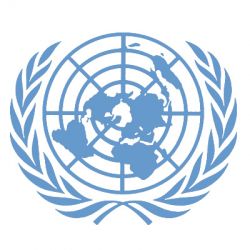The aim of the session was to asses the implementation of the ICCPR resolutions into the Polish law on the basis of a report presented by the Polish side and the already mentioned answers to the list of issues. The inspection of the national judicial order took place during a public session of the Human Rights Committee. Delegation of the Polish government led by the undersecretary of the state in the Ministry of Justice Igor Dzialuk participated in the session.
Before the commencement of the session the members of the Committee met with the representatives of non-governmental organisations. Representatives of the Helsinki Foundation for Human Rights, the Campaign against Homophobia, and the Federation for Women and Family Planning presented the most important issues regarding the application of human rights in Poland and also referred to the answers to the list of issues given by the Polish government.
During the two-day session the members of the Committee asked the Polish delegation several questions in order to explain particular issues. During the first day of the inspection of the situation in Poland the members of the Committee asked for information regarding the action in the field of antidiscrimination. They criticised inter alia the most recent statements of the Government Plenipotentiary for Equal Treatment. The Polish side did not refer to this critique and pointed out the achievements of the plenipotentiary instead. The members of the Committee also mentioned the unsolved problem of underground abortion and the lack of access to abortion for therapeutic reasons.
Attention was paid by the members of the Committee to the topic of a lack of a cohesive antidiscrimination policy, visible for example in the lack of a complex legal regulation prohibiting discrimination, or the lack of a ratification of the UN Convention on the Rights of Persons with Disabilities. The members of the Committee also concentrated on the issue of not expanding the definition of the so called hate speech in order to include homophobic language, or introducing laws prohibiting discrimination due to sexual orientation. The Polish government was also requested to present a clear position on the project of introducing gender parity law.
The preparatory proceedings regarding the alleged existence of CIA prisons on Polish territory and the detention and torture of people suspected of terrorist activity were the next issues that received significant attention. One of the members of the Committee asked the Polish delegation when a conclusion of the proceedings could be expected. He said that this issue should be a priority for the Polish government, and that current proceedings should be accelerated and brought to an end.The Polish delegation responded by saying that they could not give a precise date for the termination of the proceedings. They assured the Committee, however, that due to the gravity of the situation, the Polish government would do everything in its power to ensure that the proceedings ended within a sensible time frame.
In response to further questions of the Committee, the Polish government noted that the problem of notorious lengthening of detention has been eliminated. It provided the number of actions against the excessive length of proceedings which have been successfully considered, and the average compensation given (€750). The Committee then emphasised that the problem of overpopulation in prisons has been indeed solved but noted that the Polish government has not accepted a long-term strategy aimed at fighting overpopulation in prisons through, for example, building new ones. In response, Polish delegations assured that the most important goal is the resocialisation of the prisoners.
Due to the imprecision of some of the answers, the Committee repeated several questions. These regarded inter alia the antiterrorist regulations and their application, and whether they do not result in abuses of the law by refusing to provide sufficient protection (due to lack of access to documents with secrecy clause) for people applying for permission for a temporal stay in a situation when such a permission is denied on the grounds of possible threat to state security.
Other problems which the members of the Committee focused on were the effect of modernisation of the criminal code on the decriminalisation of people who take part in illegal adoption, as well as the lack of a guarantee to provide the subject of ethics at school. In reference to the latter issue, the government declared that the student chooses his or her subject (religion or ethics) himself and then gets a grade for it. As the Helsinki Foundation for Human Rights notices in its alternative report handed to the Human Rights Committee, the government does not give an explanation for the lack of a guarantee to provide ethics at school.
As a result of the review of the adherence to human rights in Poland, the Human Rights Committee will publish its recommendation to the Polish government on October 29, 2010. It will provide indications of how Poland should proceed in order to ensure a thorough implementation of the Pact, and thus how to fulfil its international duties.





